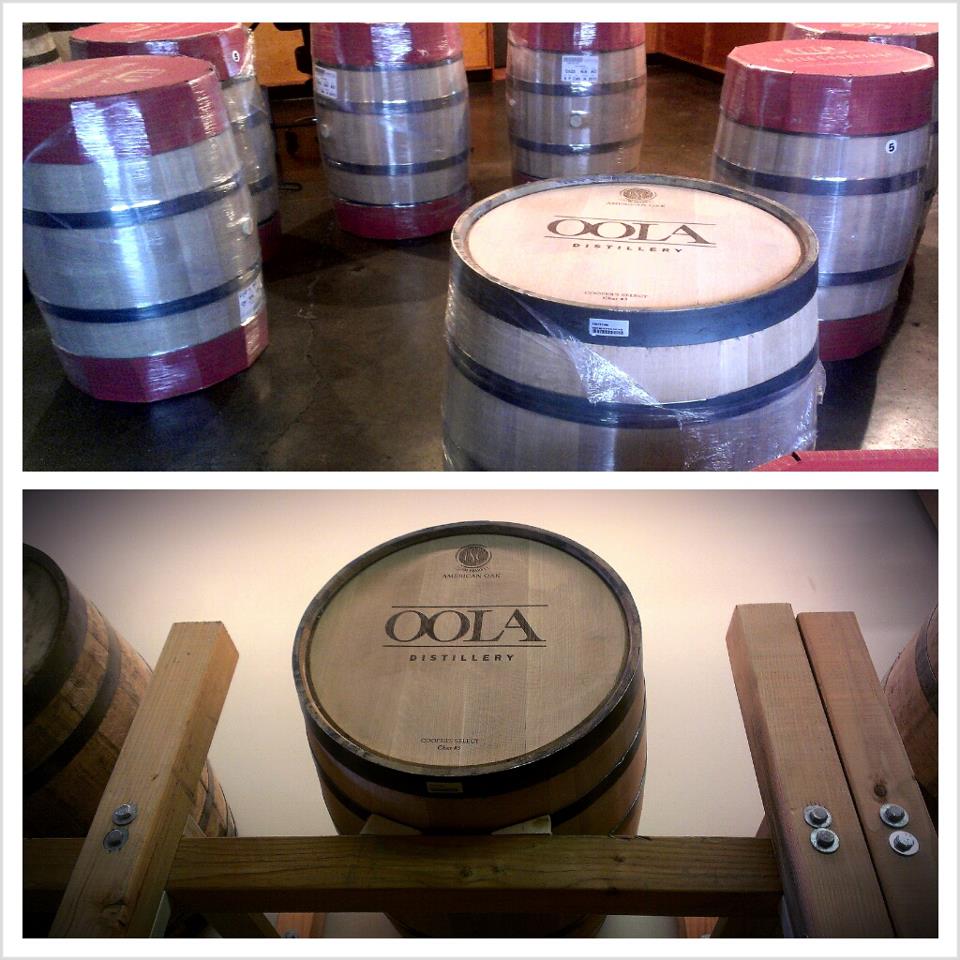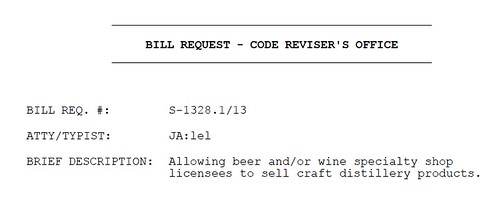It will take a lot more to make I-1183 Washington’s spirits economy more than six of one compared to the old days of half a dozen of another. But the state’s craft and micro distillers and independent wine and beer shops — with involvement of a few Capitol Hill-based businesses — are talking about taking an early step to start making things better for smaller shops, smaller producers and the state’s consumers.
A public hearing is planned for Friday in Olympia for senate bill 5731, a proposal that would allow licensed beer and wine shops in the state to sell spirits made by craft and micro distilleries. If implemented, the new law would have a December 9, 2013 effective date — the day after the two-year 1183’s change prohibition window closes.
Two of the state’s 13 Distiller/Rectifier licensed distilleries are based on Capitol Hill — 14th and Union’s Oola Distillery and E Pike’s Sun Liquor. Meanwhile, the Hill is home to licensed wine shops Vino Verite, Essence and EVS.
 New barrels for booze (Image: Oola)
New barrels for booze (Image: Oola)
The 5731 proposal would allow existing licensed beer and wine shops to sell spirits made by distillers producing less than 60,000 gallons per year of booze — like Oola, Sun and the other 13 larger distilleries in the state as well as the 58 licensed craft distilleries. It would also open their shelves to micro and craft distilleries from outside the state while making an exception to 1183’s retail store size requirements.
While there’s a long way to go for the bill to become law, the bill also may be a sign of things to come as Washington’s liquor industry looks forward to the ability to tweak 1183 as the two-year change prohibition ends later this year.
5731 is sponsored by Senator Karen Keiser (D 33rd). You can contact her here.




Hey, wait! The citizens of Washington clearly voted to limit spirit sales to businesses with a limit of 10,000. square feet. They also fundamentally voted to screw Washington owned small business at the same time. This move would be unfair to the investors and corporate entities that put in good money based on the exclusivity of booze sales.
I’m sure everyone who voted for 1183 read the entire referendum and is happy with the results.
Why limit to the beer and wine retailers? Give the right to sell to every corner ma&pop shop. In this way the consumer will benefit. Better yet, why not try to sell it in high school? Or every cafeteria, like the one in Capitol Hill in Olympia? Then, the legislators will not miss any craft spirit in WA state.
I think its a great idea.
Just refund the $210,000.00.
The state made me pay for this right.
I may be misunderstanding the comment from Richard above about the state making him pay for the “right” to sell liquor.
If we are talking about bids on former WA State Liquor store locations, nobody “made” anyone pay anything. Bids are bids. You are buying the established business and customer flow, and also the ability to sell all kinds of liquor and wine. That is so unique, given the demand for liquor, that it has much greater worth than just opening a regular store.
If 5731 passes, specialty beer and wine shops would ONLY be allowed to sell liquor made by small, local distilleries. We may NOT sell all the big brand names that bring so much business to the large format stores and the established former WA State liquor store sites. So the difference is probably worth $200K or so. It’s a huge privilege to be able to sell all the kinds of liquor possible.
It’s also a privilege I wouldn’t want as a small specialty beer and wine shop owner. I just want to represent and support the local, small businesses that sell liquor. I don’t want to sell Jack Daniels and the like.
As for the comments about selling liquor everywhere, the argument has been that it would increase the amount of underage drinking since the “failure rate” of age verification would be higher.
As an owner of a small wine shop, I can say that we know most, if not all of our customers very well. It’s a “hand sell” business; it’s about how well we know the person’s tastes, and listen to what she or he is asking for. So the failure rate of age verification should be very low. Having said all this, I’ll leave the debate of liquor availability up to others, and in the end to the voters if a new initiative comes through.
-Tom